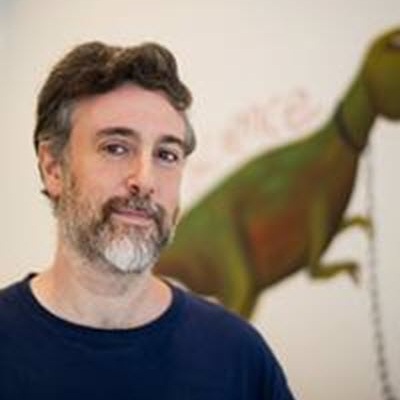 My guest this episode is Dr. Michael Graziano, Professor of Psychology at the Princeton Neuroscience Institute where he runs a lab and studies the brain basis of consciousness. He earned his PhD at PRINCETON UNIVERSITY in 1996 and is an accomplished musician and composer as well as a published author, having published several novels in addition to his published works.
My guest this episode is Dr. Michael Graziano, Professor of Psychology at the Princeton Neuroscience Institute where he runs a lab and studies the brain basis of consciousness. He earned his PhD at PRINCETON UNIVERSITY in 1996 and is an accomplished musician and composer as well as a published author, having published several novels in addition to his published works.
We had a great conversation about his Attention Schema Theory and much more.
We (roughly and out of order) covered the following questions:
- Your lab focuses on “the brain basis of consciousness.” Tell us a bit about the lab and what you guys are studying.
- Should we start with an overview of the evolution of consciousness? (Cambrian Explosion, nervous systems, language, tectum, etc.)
- Was ‘social prediction’ a big milestone in the evolution of human consciousness? (Never look a mountain lion in the eyes)
- How has language affected the evolution of schemas and consciousness?
- What is the Attention Schema Theory (AST)?
- Philosophers talk about Qualia (greenness, the smell of coffee). Do you say those are cases where the brain has arrived at a false conclusion? If so, can you expand on that?
- Does this make the ‘hard problem’ of consciousness moot? Rule out dualism?
- Awareness versus Attention?
- When you say a model is schematic, do you mean within the mind (neurons, chemicals, etc.), or of the object itself (like a basketball)? I think you mention different parts of the nervous system or brain being excited (or calmed) to create that model?
- What’s happening in the brain, physically, when a schema/model is created?
- Is there a process to store, link, categorize these models? (Cortical networks?)
- What kind of studies/observations have you made with these schemas?
- “In neuroscience, attention is a process of enhancing some signals at the expense of others. It’s a way of focusing resources.”
- Ego schema?
- What’s happening in the brain, physically, when a schema/model is created?
- Something it is like to be a bat…is that simply a matter of determining if the bat’s brain can assemble models. Can we measure that (fMRI) like we can in humans and know the answer? If it can be attentive, it can model (awareness), therefore it has consciousness?
- You refer to consciousness as a “lattice of cognitive and social properties”. Can you explain that for us?
- When you say a model is schematic, do you mean within the mind (neurons, chemicals, etc.), or of the object itself (like a basketball)? I think you mention different parts of the nervous system or brain being excited (or calmed) to create that model?
- What experiments has your lab done on this? [dot experiment], what other experiments are in progress or coming? [hemispherical damage and awareness — thrown ball — purely physical? Attention? No awareness?]
- How do these schemas play into the brain’s role as a filter for the overwhelming amount of data and sensory input it has to process?
- Philosophers talk about Qualia (greenness, the smell of coffee). Do you say those are cases where the brain has arrived at a false conclusion? If so, can you expand on that?
- Have any arguments contrary to AST given you pause?
- How could a non-physical, ‘outside’ consciousness affect neurons (Arrow B)? Well, if we hypothesized that they, in fact, could, what ways COULD that be possible? Are there such theories, have they been tested?
- Are there any experiences (qualia) that appear to contradict AST?
- What’s your take on other theories of consciousness: panpsychism, psi phenomena, etc.?
- Integrated Information Theory is a phlegm theory?
- I tend to come back to your way of thinking, then I’m presented with some things that can’t be explained by it:
- Near death experiences and other psi phenomena/experiences
- Dr. Dean Radin’s double-slit experiment
- Are these similar to social perception, like deities and ventriloquist dummies?
- What about dreams, hallucinations, or meditative visions? Are they models created by the brain based on other models? The brain can generate its own schema, which is not observed by the senses (awareness without attention – b/c there’s no physical component?)
- First, something exists (attention); then a caricature is created (awareness). What if awareness comes first? Is something then created? Is that a potential path to idealism?
- Given your background in music and composition, what are your thoughts on music and schemas, models, and consciousness?
- How do you explain creativity, a burst of inspiration, when creating music or literary ideas? [Art versus Science]
- You’ve also written several novels. Any of those touch on consciousness and the AST?
- What’s in your future, as far as studies, potential breakthroughs, books, musical compositions?
- Your predictions on us building a conscious robot/computer and the role of the AST in that?
Podcast: Play in new window | Download